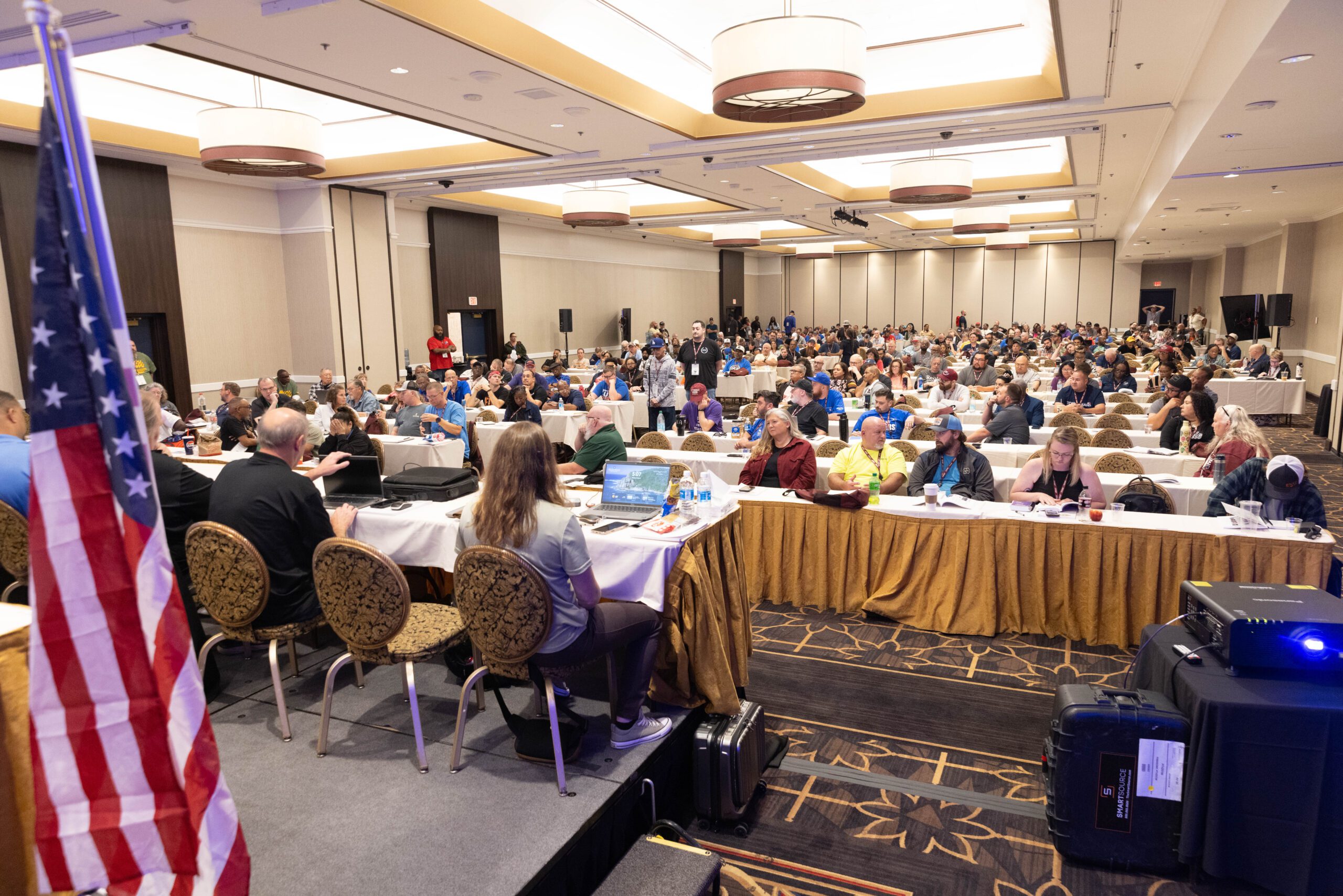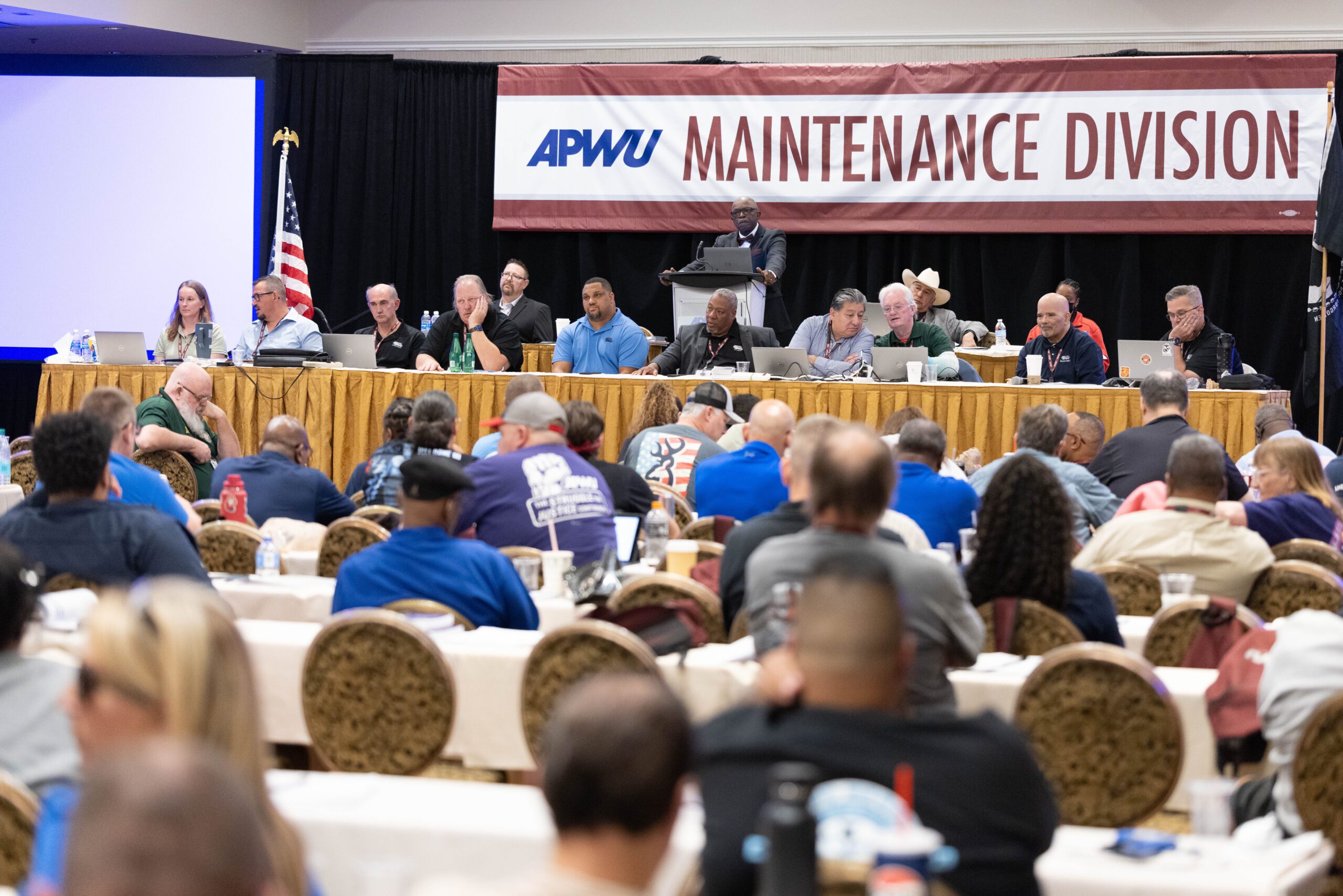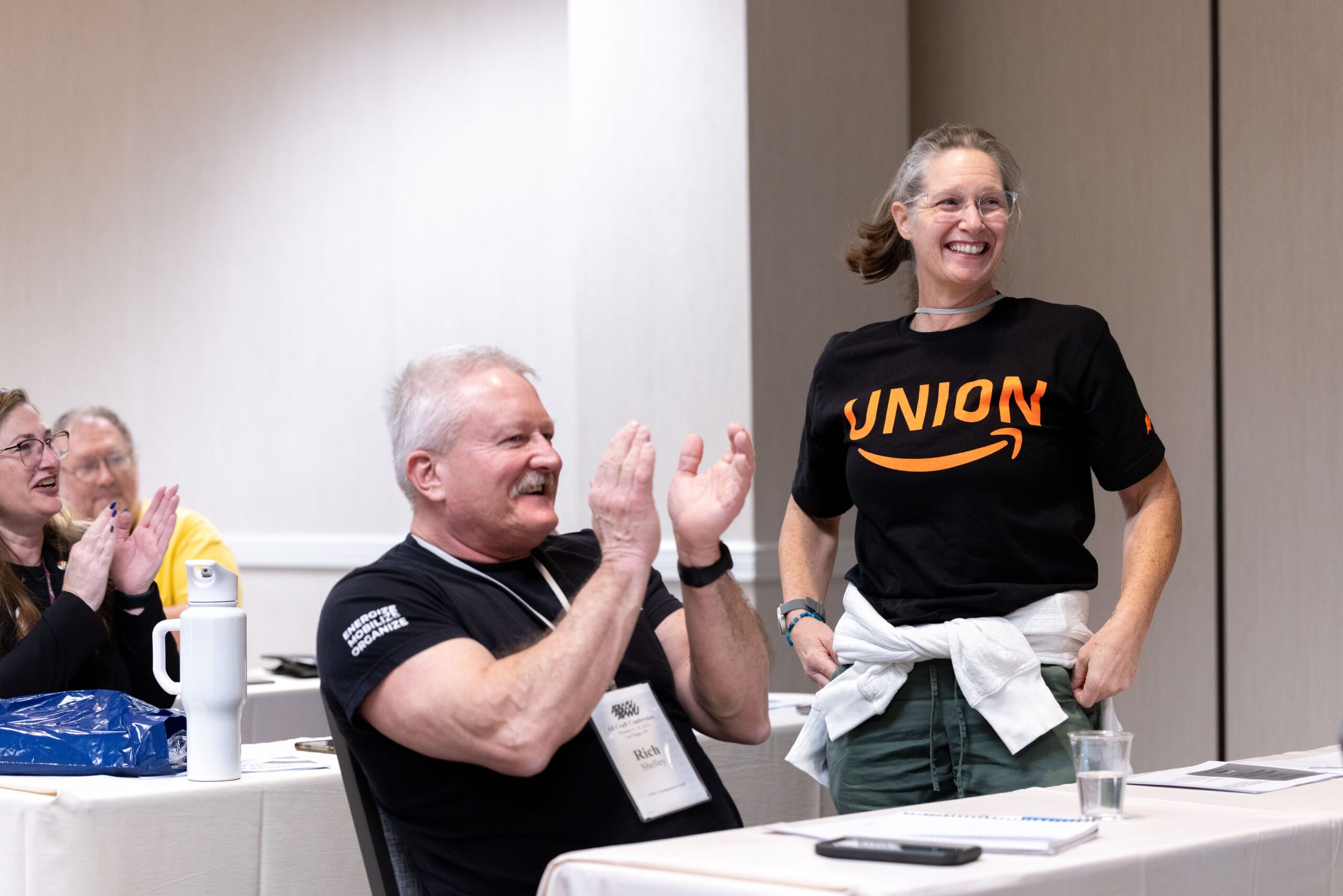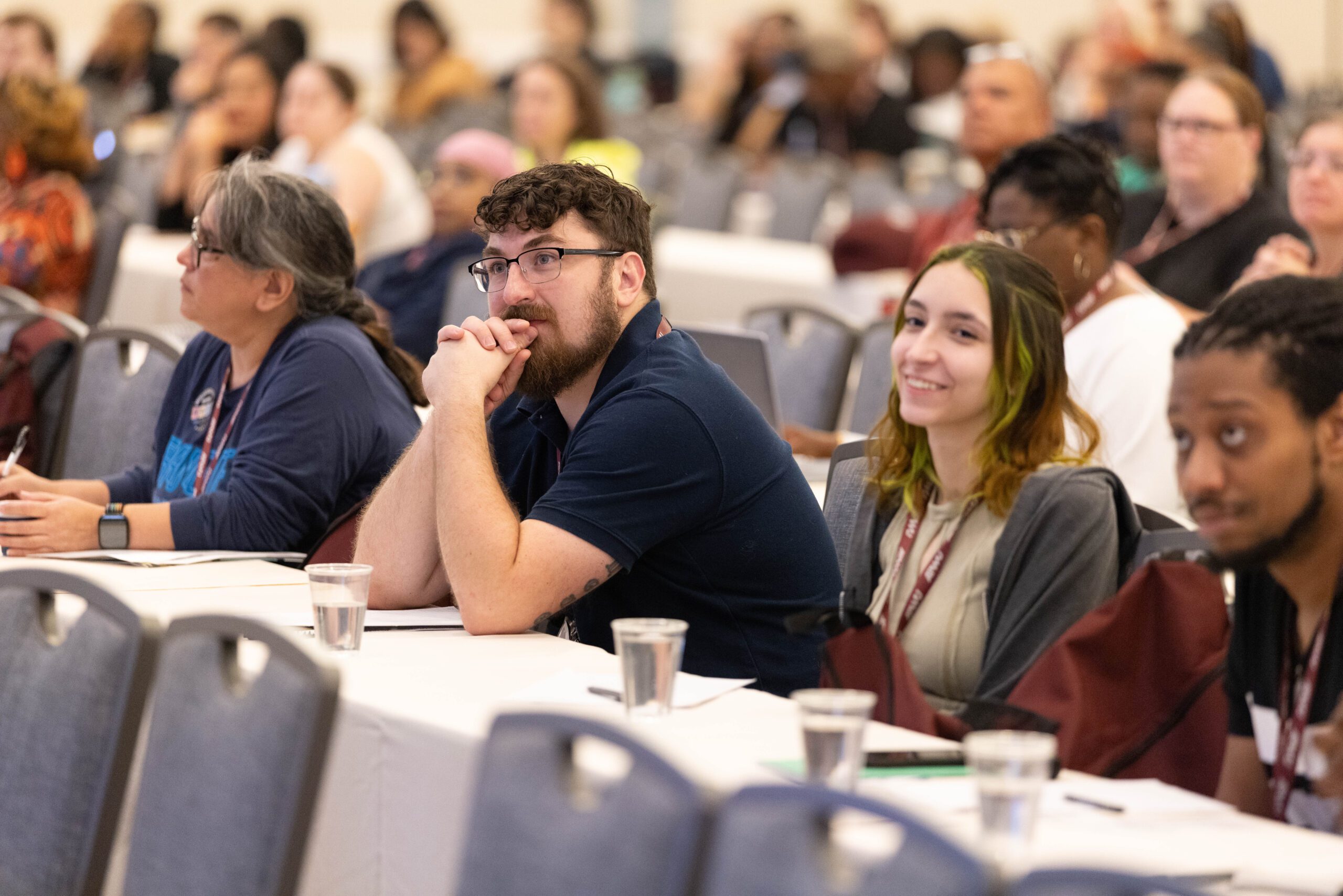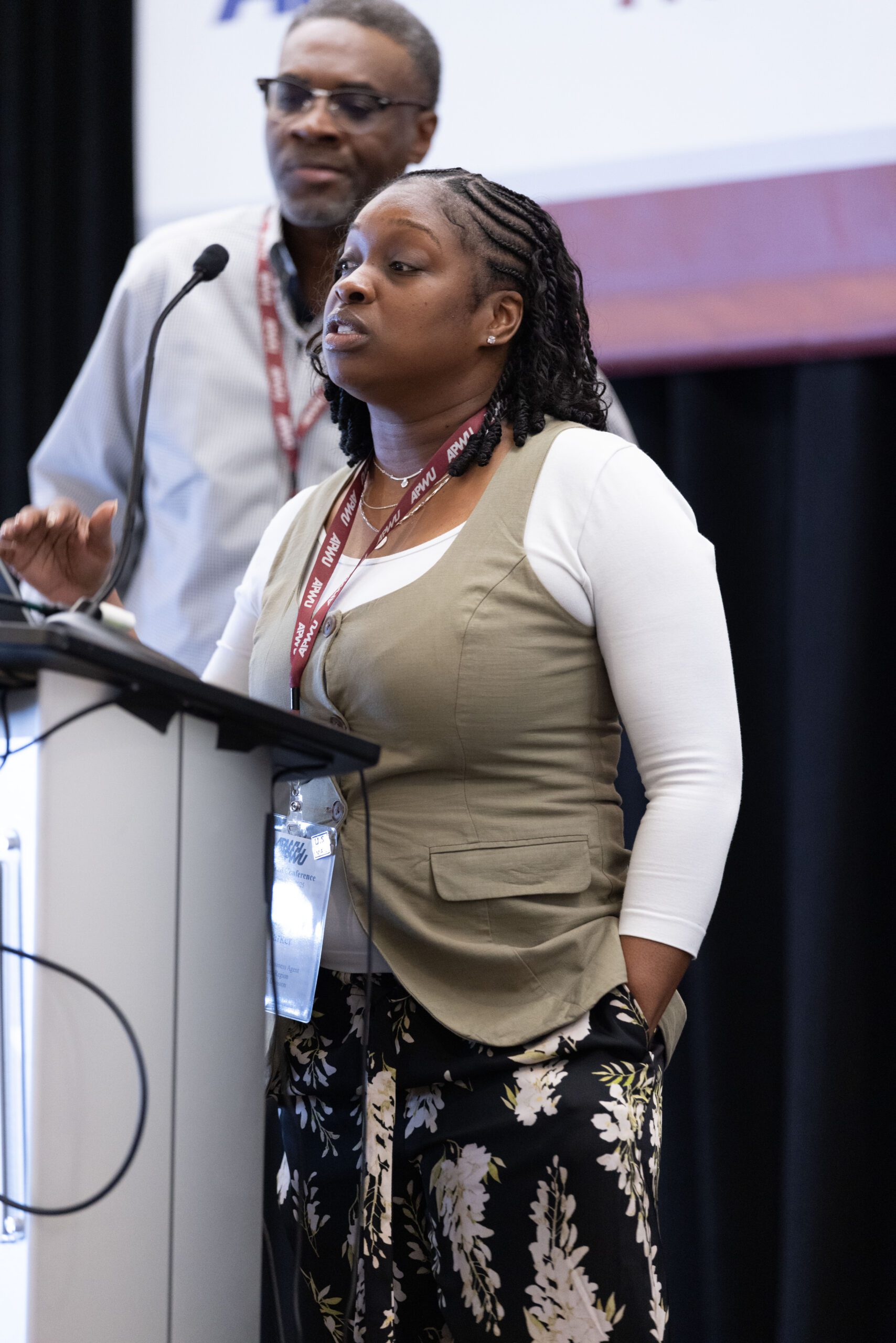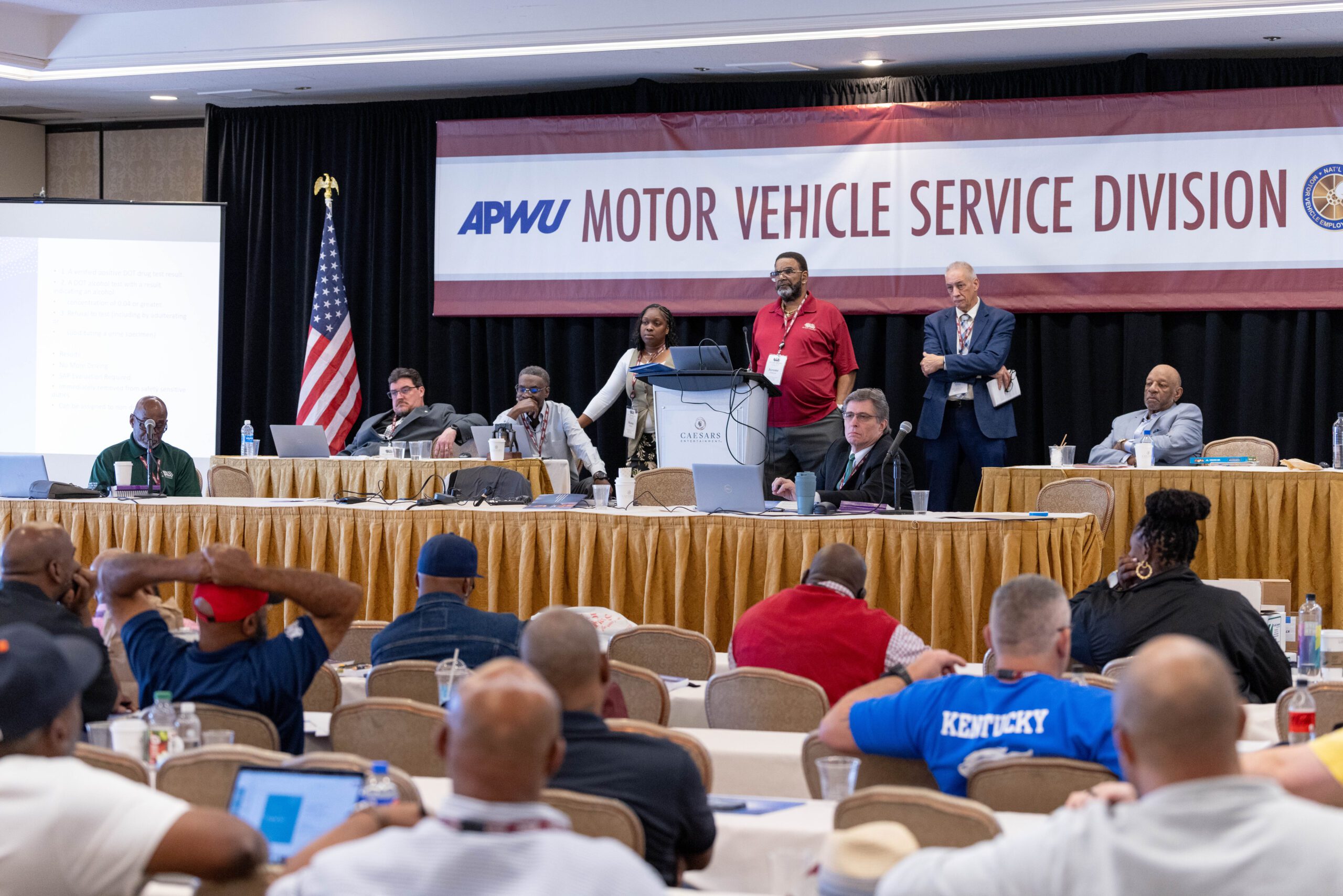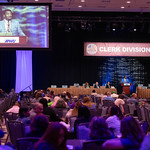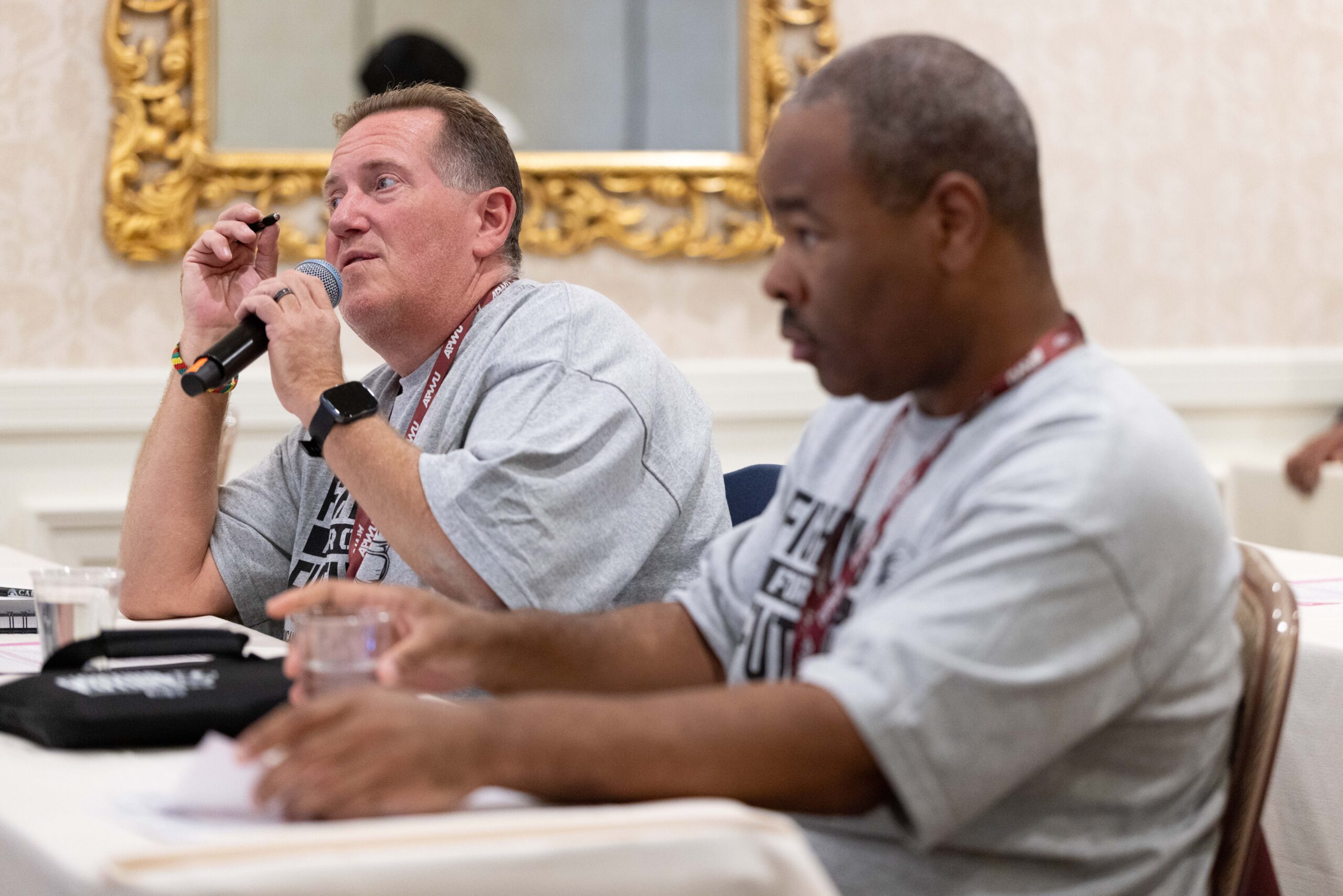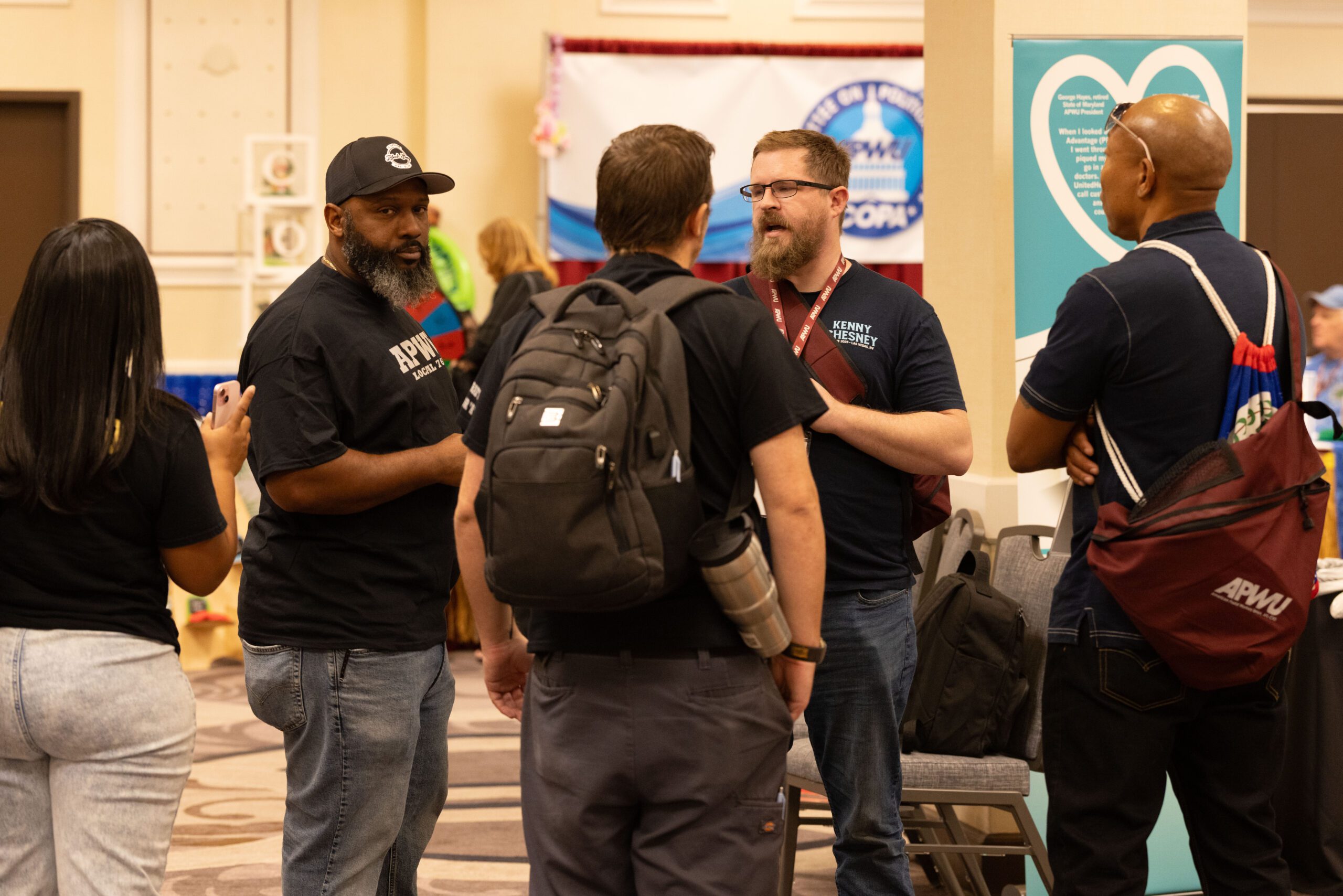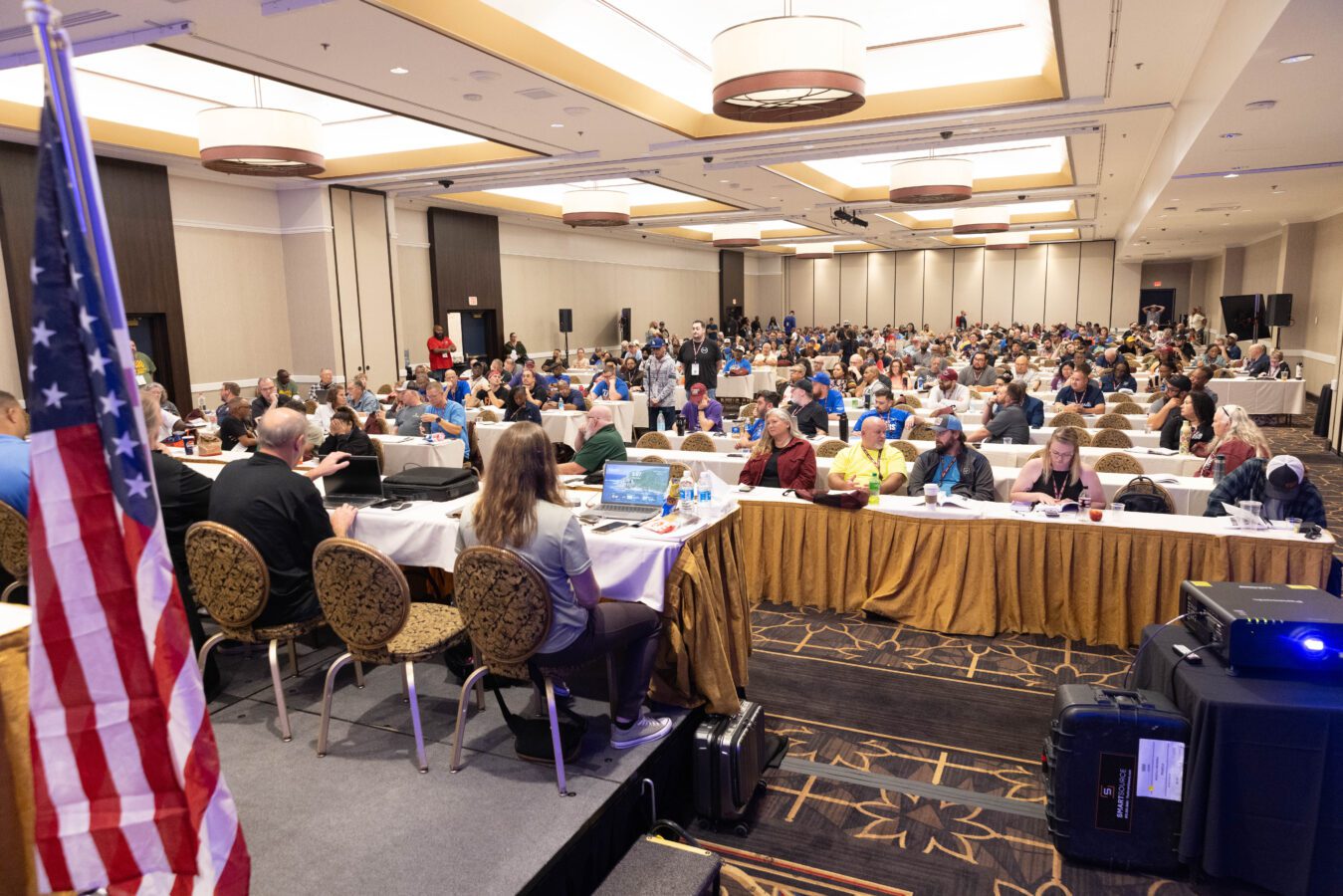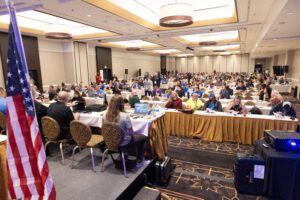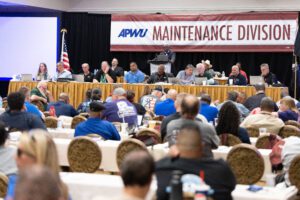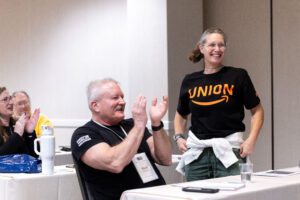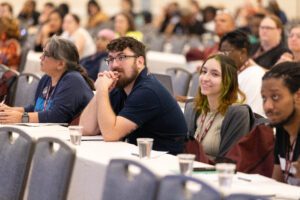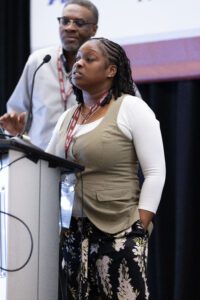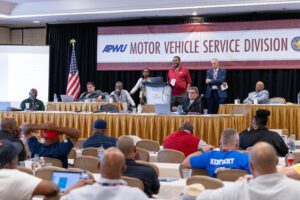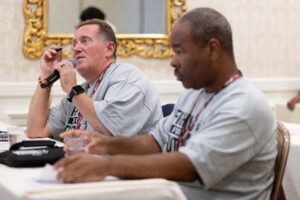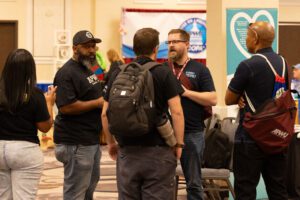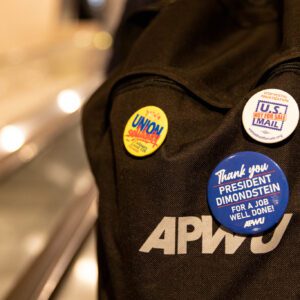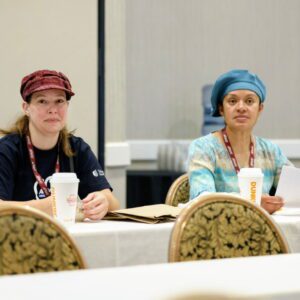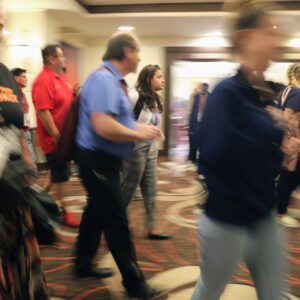October 7, 2025
APWU 2025 All Craft Conference Begins
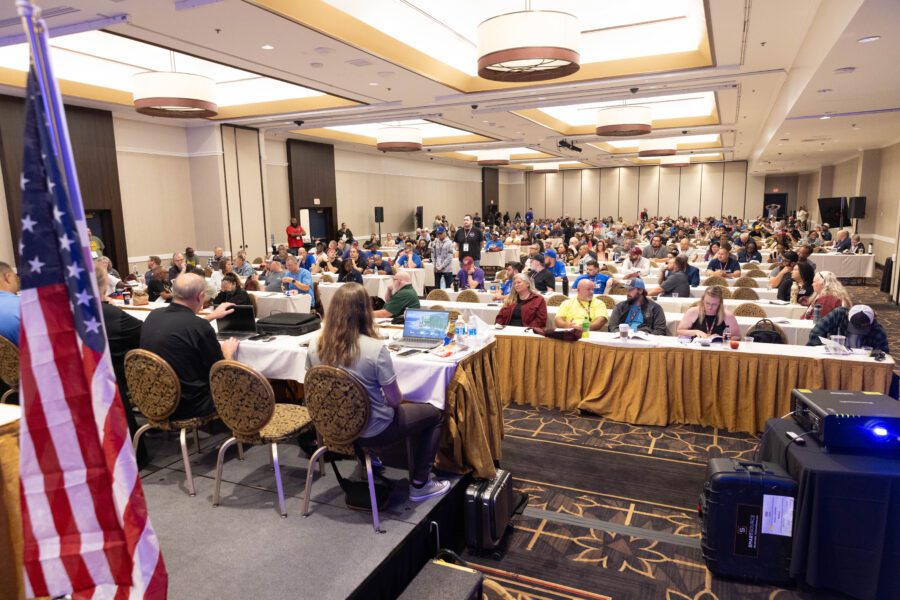
On Monday, Oct. 6, the APWU 2025 All-Craft Conference began. The Clerk, Maintenance, Motor Vehicle Service (MVS), and Support Services Divisions of the APWU came together in Las Vegas to discuss important updates and train members on how to best support and uplift their coworkers and postal services.
You can find photos of the entire day at apwu.org/photos
Maintenance Division Opens with a General Session for Delegates
Assistant Maintenance Craft Director (A) Terry B. Martinez opened the general session, welcoming delegates, before being led in prayer by Carlos Paz, Southern Region Coordinator (B).
Martinez introduced the Division National Business Agents (NBAs): Stephanie Logan (Central Region-C), Jeffrey Beaton (Central Region-B), Craig Fisher (Central Region-A), Dave Sarnacki (Northeast Region), Kenneth Lester (Eastern Region), Carlos Paz (Southern Region-B), John Gearheard (Southern Region-A), Hector Baez (Western Region-A), Louis Kingsley (Western Region-B), and Josh Montgomery (Southern Region-C).
Maintenance Director Idowu Balogun introduced Assistant Maintenance Directors Terry Martinez (A) and Jason Treier (B) and acknowledged Staffing Assistants and Arbitration Advocates in attendance.
Jeffrey Beaton, Central Region-B, introduced a motion to rename the Maintenance All-Craft Conference to the “Craig Fisher Maintenance Conference” in honor of outgoing Central Region-A NBA Craig Fisher’s years of service.
Western Regional Coordinator Welcomed Delegates to Las Vegas
Western Regional Coordinator Omar Gonzalez took to the podium and welcomed members to his region, hailing Maintenance as the craft that “has the Postal Service functioning”.
National Executive Council Addressed Members
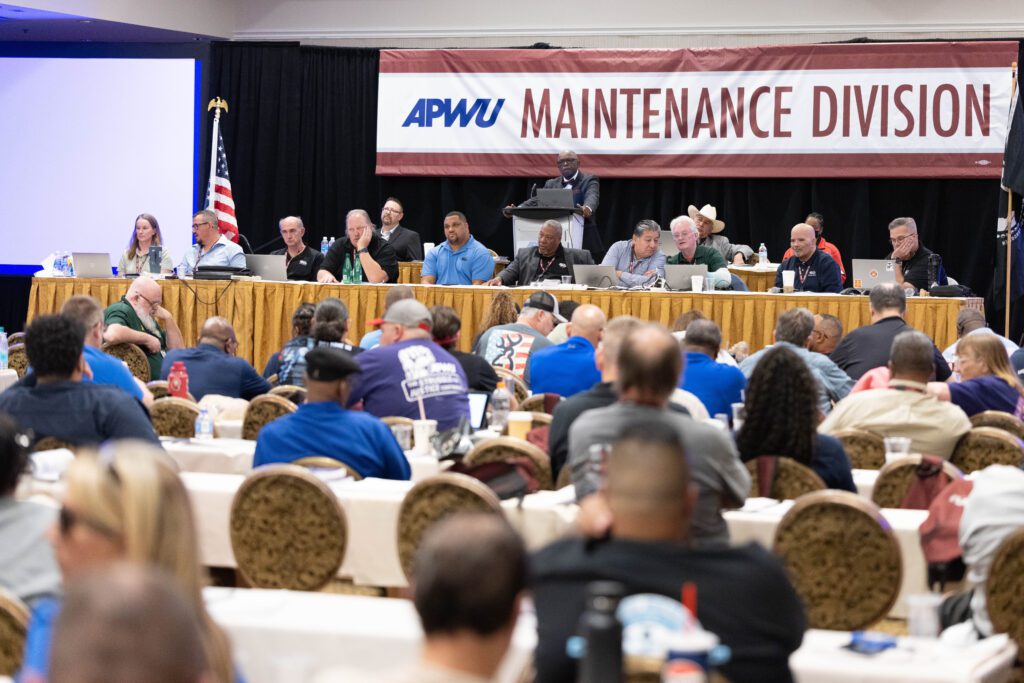
Maintenance Division Director Idowu Balogun introduced APWU National President Mark Dimondstein who attended the session with Executive Vice President Debby Szeredy, Industrial Relations Director Charlie Cash, Legislative & Political Director Judy Beard, Organizing Director Anna Smith, Human Relations Director Daleo Freeman, Health Plan Director Sarah Jane Rodriguez, Northeast Region Coordinator Tiffany Foster, Eastern Region Coordinator AJ Jones and Central Region Coordinator Amy Puhalski.
Dimondstein spoke about the current APWU initiatives, such as the 250th anniversary of the Postal Service proclamation campaign and our organizing campaign. He also touched on the impacts of the federal government shutdown, the decline of letter volume, and how we must adapt to the changing times, fight the privatization of postal services, and the importance of collective bargaining and a strong contract.
“The Postal Service is a great example of government, by and for the people, and we want it to stay that way. Every one of you has an important role to play in that, but understand those fights are outside of the four corners of the contract,” Dimondstein said. He concluded his speech by urging the membership to unite “the union way” to pass the torch to the new generation.
Executive Vice President Debby Szeredy, Industrial Relations Director Charlie Cash, and Northeast Regional Coordinator Tiffany Foster also brought greetings and remarks.
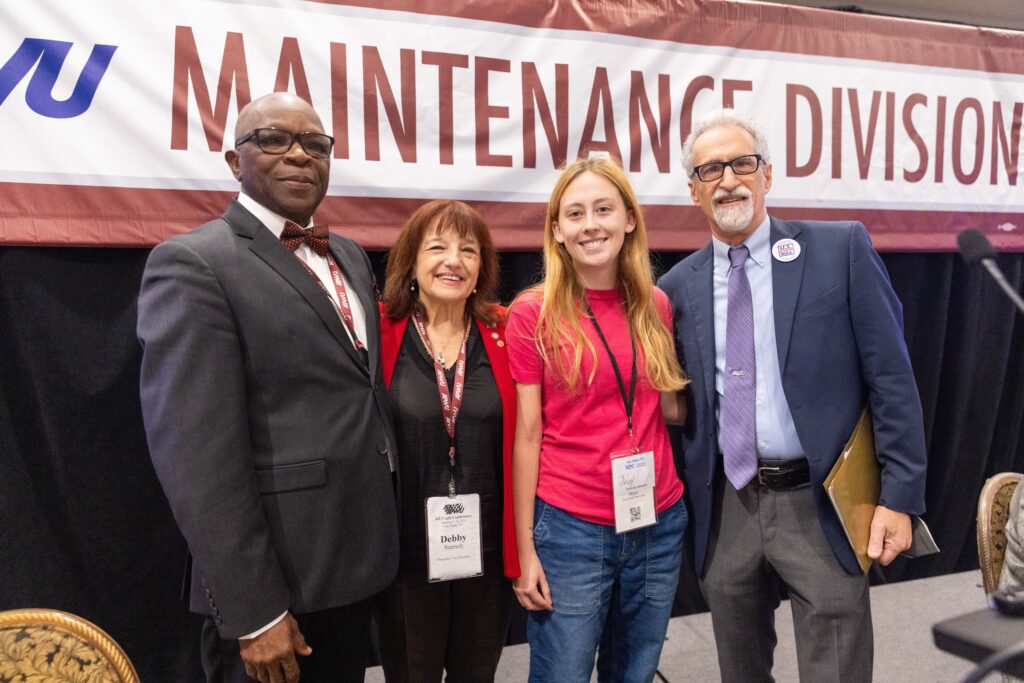
Before officer reports began, Director Balogun acknowledged all the Maintenance Craft Directors under 30, and celebrated Abby Moyer of the Des Moines Area Local as the youngest Maintenance Director at just 22 years old. She was brought up for a photo opportunity with Dimondstein, Szeredy, and Balogun.
Maintenance Division Officer Reports
Maintenance Director Balogun discussed notable Step 4 national arbitrations from the past year, including the PTR Cap Violation, Maintenance Capable v Non-Maintenance Capable, Promotion Cancellation, and the pending SDUS Clerk Maintenance Operator.
Balogun acknowledged the Maintenance Craft National Negotiating Team before turning it over to Dave Sarnacki, who discussed the gains won in the new contract and recent Maintenance MOUs.
Jason Treier addressed APWU Notifications from USPS on the SDUS Maintenance/Operator and Mail Distribution Clerk, Facilities Maintenance Organization app, new exams, and EL-304.
Maintenance officers also touched on MS-47 Maintenance Procedures and Personnel Guidelines and discussed in depth the proposed replacement of 955 examinations.
Martinez provided a history of the National Center for Employee Development (NCED) for the training of USPS employees, and MOUs achieved by APWU to improve members’ experiences, including the ability to purchase food off-site with GSA rate per diem, and guaranteed amenities. Martinez also went over the list of National Subcontracting Cases Pending Arbitration.
JCIM Updates and MOUs in the 2024-2027 National Agreement
The General Session concluded with a presentation by Northeast Regional Maintenance NBA Dave Sarnacki on Article 38 updates to the Joint Contract Interpretation Manual and new Maintenance Division Memorandums of Understanding in the new 2024 National Agreement.
A lively discussion was held on Custodians and Line H. Delegates shared concerns on the job, such as low pay, understaffing, poor working conditions, safety, and worker morale.
Balogun ended the debate and discussion, concluding the conference, “If you can’t do anything else, be kind. We don’t negotiate with ourselves; we negotiate with management. Let’s work together instead of trying to tear each other apart.”
The delegates will spend the remainder of the All-Craft Conference working in their regional breakout sessions and attending workshops.
Support Services Starts the Week Union Strong
The Support Services Division held its 2025 General Session on Oct. 6, the first day of the department and division meetings. Support Services Director Arrion Brown greeted attendees and read the agenda for the day’s session, titled “Organizing for Support Services, the APWU, and the Labor Movement.”
Director Brown spoke about the importance of organizing, and moved into the first item of the agenda, which covered relevant sections of the APWU Constitution and Bylaws that support the Division’s organizing goals, including:
- Article 2 Objectives – such as organizing the unorganized; educating members and the public about the history of the labor movement; and engaging in legislative activities and political education to further the interests of the membership of the union in the improvement of general economic and social conditions in the US.
- Article 4 Jurisdiction – that allows the APWU to organize all postal and mail handling operations at the Postal Service, or any other employer, including operations that transmit messages by electronic or other means.
- Article 9 Division Officers – that provides for a Support Services Division Director, and the crafts and bargaining units that it is allowed to represent.
- Article 16 Fiscal Year, Revenues, and Charters – Which establishes an APWU organizing fund to be used exclusively for private-sector organizing.
The next topic on the agenda covered how organizing protects our membership, and the dangers postal workers face if we do not organize the private sector. To that end, Director Brown spoke about the legal requirement for wage comparability, a part of the Postal Reform Act of 1970 that mandates that USPS compensation must be comparable to the private sector. He showed data that proves that it benefits postal workers’ wages when the private sector is unionized.
Brown then spoke about the downward pressure on postal unions from private sector cuts. When private companies reduce wages, eliminate benefits, or increase health care costs, it gives the Postal Service leverage to argue for lower pay increases and reduced benefits during contract negotiations and arbitration proceedings. This leads to what is called the “race to the bottom” effect. This is a cycle where declining private sector compensation legally constrains postal worker wage growth, reducing overall purchasing power and forcing working-class employees to compete for diminishing resources, reiterating the importance of protecting our membership by organizing the private sector.
This led Director Brown into the next topic on the agenda, which was the basics of organizing, including tips on how to have an organizing conversation, how to be a good listener, and “aiming for the bullseye,” which is an organizers goal of changing the attitudes of those on the outside who may initially be hostile or disengaged from unionizing closer to the center of being a core activist.
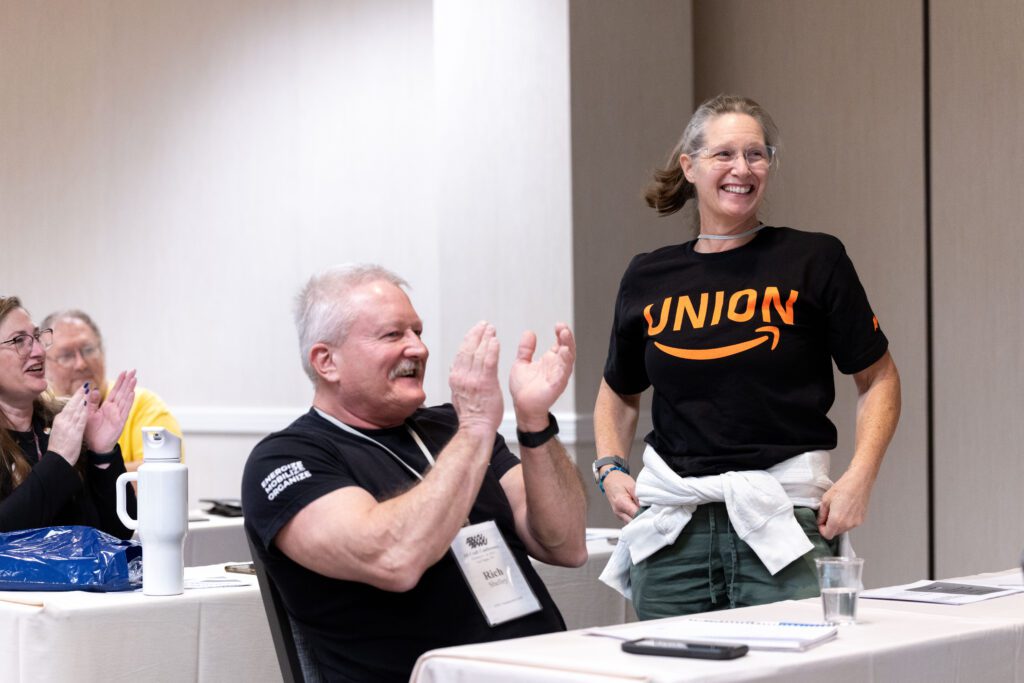
After some input from APWU’s lead private sector organizer, Rich Shelley, who spoke about probing unorganized workers to gather their interest in potentially organizing, and a demonstration by private sector organizer Lori Cash and Amazon worker Lauri Masterson on how to have an organizing conversation, attendees broke into groups for an exercise on writing an organizing conversation.
The morning session concluded with a discussion about the benefits of a strong, organized labor movement, what workers have accomplished in the past, and where we go from here.
“The potential in organizing the private sector and how to organize ourselves all gets us to a broader definition of what we can do for the labor movement – we want a strong, organized labor movement,” exclaimed Director Brown. “So, what has a strong, organized labor movement accomplished over the years?”
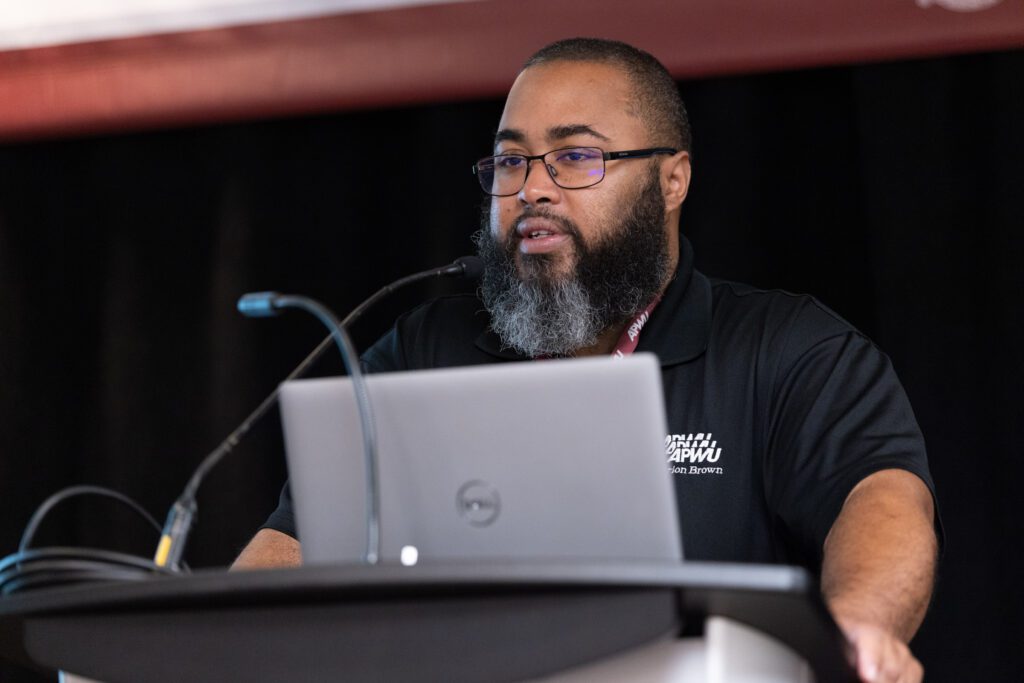
Director Brown provided some examples of organizing wins of the past, including the San Francisco General Strike in 1934, the fight for the 40-hour work week, the National Labor Relations Act, and how tens of thousands of labor activists from the Korean Metal Workers Union and the Teachers Union in South Korea in 2024 halted a marital law declaration within six hours made by then-President Yoon Suk Yeol, who attempted to suppress what he called “anti-state forces.”
The afternoon session consisted of an in-depth presentation by Support Services National Business Agent Orlando Anderson on the importance of effective grievance writing. He went over the details of grievance procedure, fighting against discipline, and taught tips and best practices of filing grievances.
While the Maintenance and Support Services Divisions held their general sessions, the Clerk, MVS, and Retirees Divisions all held workshops and training sessions for delegates in anticipation of their general sessions later in the week.
Scenes from 2025 All Craft Conference
